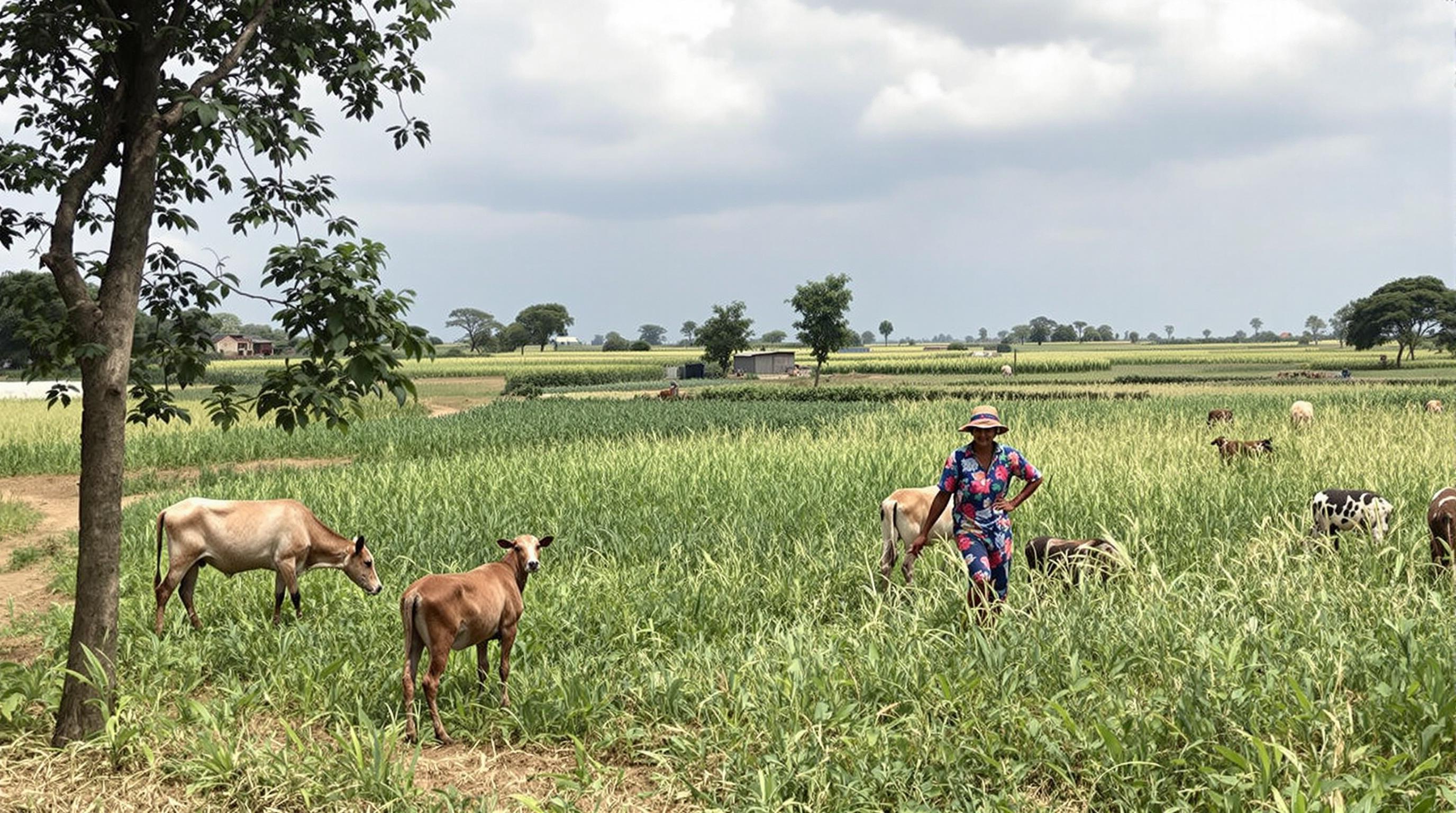Related Articles
- Culinary Cartography: The Unexpected Foods Shaping Local Identity in Urban Landscapes
- Flavors of the Forgotten: Rediscovering Culinary Traditions in the Shadows of Modern Food Trends
- Palate Pilgrimage: The Unlikely Fusion of Ancient Rituals and Modern Local Fare
- Ecosystem Engineers: Celebrating the Role of Nature-Based Solutions in Transforming Eco-Travel Experiences
- Ghost Towns and Green Trails: Unearthing Sustainable Journeys Through Forgotten Landscapes
- Hidden Footprints: Decoding the Carbon Footprint of Digital Nomadism in Edging Towards Sustainable Getaways
11 Untold Stories: How Sustainable Tourism Is Reshaping Agricultural Practices and Reviving Rural Communities Worldwide
11 Untold Stories: How Sustainable Tourism Is Reshaping Agricultural Practices and Reviving Rural Communities Worldwide
11 Untold Stories: How Sustainable Tourism Is Reshaping Agricultural Practices and Reviving Rural Communities Worldwide
1. Introduction to Sustainable Tourism
Sustainable tourism focuses on minimizing the negative impacts of travel while promoting environmental conservation, social equity, and economic benefits for local communities. It aims to create a balance between tourism growth and the nurture of cultural and natural resources. This growing trend has influenced various sectors, including agriculture, where tourism serves as a catalyst for revitalizing rural economies.
Communities worldwide are beginning to recognize the potential of blending tourism with sustainable agricultural practices. This synergy allows local farmers to share their traditions and produce while attracting visitors interested in their narratives. It results in a win-win situation marked by mutual benefits for both tourists and local communities.
This article will delve into 11 untold stories of how sustainable tourism is not just an economic opportunity but also a means of preserving rural heritage and agricultural integrity across the globe.
2. The Portuguese Experience: Wine Tourism
In Portugal, wine tourism has revolutionized traditional vineyards, especially in the Douro Valley. As vineyards open their doors to tourists, they not only generate extra income but also encourage sustainable practices such as organic farming and reduced water usage. Many wineries offer guests the chance to participate in grape harvesting, directly linking them with the farming process.
This hands-on experience enhances visitors’ appreciation for the hard work involved in producing wine, fostering a deeper emotional connection between the consumers and the producers. In return, local farmers are motivated to adopt environmentally friendly practices to maintain the quality of their produce.
As a result, regions like the Douro Valley have seen revitalized agricultural practices, ensuring that centuries-old traditions continue while adapting to modern tourism demands. The balance of preserving heritage and embracing travelers is a model for sustainable tourism.
3. Italy's Agritourism Revolution
Agritourism in Italy serves as a prime example of how rural communities leverage tourism to bolster agriculture. Visitors flock to agriturismos—farms that offer lodging and food—where they can experience authentic Italian cuisine made from locally sourced ingredients. This experience not only supports the local economy but also encourages sustainable farming.
Many agriturismos prioritize organic farming methods, raising awareness around biodiversity and the importance of consuming seasonal produce. This consciousness ripple effect motivates consumers to make healthier food choices and supports local farmers who adhere to sustainable practices.
Italy shows us that agritourism can bridge the gap between rural and urban, providing tourists with immersive experiences while ensuring the agricultural landscape remains vibrant and sustainable.
4. The Peruvian Amazon: Eco-Tourism Meets Agriculture
The Peruvian Amazon is rich in biodiversity, and eco-tourism here plays a critical role in agricultural sustainability. Local communities engage with tourists in community-based tourism initiatives that foster an understanding of indigenous agricultural techniques and permaculture.
Through guided tours, visitors learn about the interdependence between traditional farming practices and ecological conservation. This knowledge not only enhances tourists’ awareness but also empowers local farmers to maintain and pass down sustainable practices that thrive amidst climate change.
The convergence of eco-tourism and agriculture in the Amazon illustrates the potential to educate tourists while perpetuating the livelihoods of local communities, ensuring food sovereignty and environmental stewardship.
5. Kenya’s Community-Based Conservation
In Kenya, community-based conservation initiatives are integrating agriculture with sustainable tourism, particularly in areas near national parks. Responsible travel encourages visitors to learn about wildlife conservation, while local farmers engage in sustainable practices that benefit both their crops and the environment.
Farmers are incentivized to adopt eco-friendly agricultural methods, knowing that their success is tied to the health of the ecosystems that attract tourists. Programs that support coexistence between wildlife and agriculture ensure that local communities thrive while preserving their natural surroundings.
In this way, sustainable tourism enables rural communities to find economic stability while nurturing their relationship with the environment, where the lasting benefits reach far beyond immediate financial gains.
6. The Revival of Small Farms in Japan
In Japan, as urban migration led to the decline of small farms, sustainable tourism has breathed new life into rural agriculture. Local governments promote rural experiences such as farm stays and cooking classes that spotlight traditional methods and endangered crops.
This revival has not only reinvigorated the local economy but also spurred younger generations to consider agriculture as a viable profession. Many small farmers have turned their land into educational spaces where tourists learn about cultivation techniques and Japanese culinary arts.
As a result, Japan's rural communities are seeing a rejuvenation of their traditions and a sustainable economic model that emphasizes local produce while enriching the cultural tapestry of the region.
7. India's Organic Farming and Culinary Tours
India is witnessing a burgeoning interest in organic farming, spurred by sustainable tourism initiatives. Culinary tours that take guests to organic farms underscore the significance of chemical-free agriculture and promote local flavors. Here, farm visits include interactive cooking sessions that highlight traditional cooking methods.
This approach creates a sustained interest in organic farming as guests leave with a deeper appreciation for the food they consume and the farmers who grow it. Many local farmers report increased motivation to maintain sustainable practices as they see firsthand the positive response from tourists.
The intersection of culinary tourism and organic agriculture in India showcases how sustainability can transform food systems while providing a unique experience for visitors.
8. The Revival of Terraced Farming in Vietnam
In Vietnam, terraced farming in the mountainous regions is being revitalized through sustainable tourism. Tourists flock to these picturesque landscapes to hike, cycle, and engage with local farmers who teach them about rice cultivation and other traditional practices.
This kind of tourism aids in preserving these unique agricultural landscapes that have ecological and cultural significance. Visitors’ fascination with the picturesque terraces encourages the local community to maintain these methods, as they directly correlate to their livelihood and cultural heritage.
As a result, Vietnam presents a compelling example of how tourism can serve as a powerful motivator for sustainable agriculture, fostering an appreciation for traditional farming methods while encouraging their continued use.
9. Costa Rica: Biodiversity and Agricultural Harmony
Costa Rica is renowned for its commitment to sustainability, and agricultural practices here have adapted to meet the demands of sustainable tourism. The country's eco-tours highlight the interconnectedness of biodiversity and agricultural practices, educating visitors about the importance of sustaining both.
Many local farms operate alongside national parks, and efforts to educate tourists about maintaining ecosystems have led to improved farming techniques that prioritize biodiversity. Farmers work collaboratively with conservationists to ensure their practices contribute positively to the environment.
This approach exemplifies how sustainable tourism in Costa Rica supports a refined agricultural landscape that holds value for local communities, travelers, and the planet alike.
10. Reinvigorating Rural Communities in Eastern Europe
In Eastern Europe, rural tourism initiatives are drawing visitors to remote villages, fostering interest in local agricultural practices and products. Communities benefit from this influx as they promote traditional crafts and foods, allowing a revival of local identity and economy.
Farmers engage in practices that yield organic produce while teaching tourists about their heritage. This exchange not only strengthens community bonds but also provides a platform for the younger generation to take pride in their roots.
The resurgence of rural communities through tourism in Eastern Europe demonstrates that sustainable development can be achieved hand-in-hand with agriculture, nurturing local cultures while enhancing food security.
11. Conclusion: The Future of Sustainable Tourism and Agriculture
As the world leans towards more sustainable practices, the stories of communities worldwide illustrate that sustainable tourism has immense potential to reshape agricultural practices. It fosters an understanding of the intricate balance between nature and agriculture, allowing for the preservation of traditions and a brighter future for rural economies.
By supporting local farmers, tourists play a crucial role in the ongoing journey towards a sustainable agricultural model. These interactions lead to not only cultural exchanges but also encourage practices that respect the environment and promote social equity.
In closing, the narratives of these rural communities underline the transformative impact of sustainable tourism, revealing that through our collective actions, we can revive the essence of agriculture while ensuring a healthier planet for generations to come.




